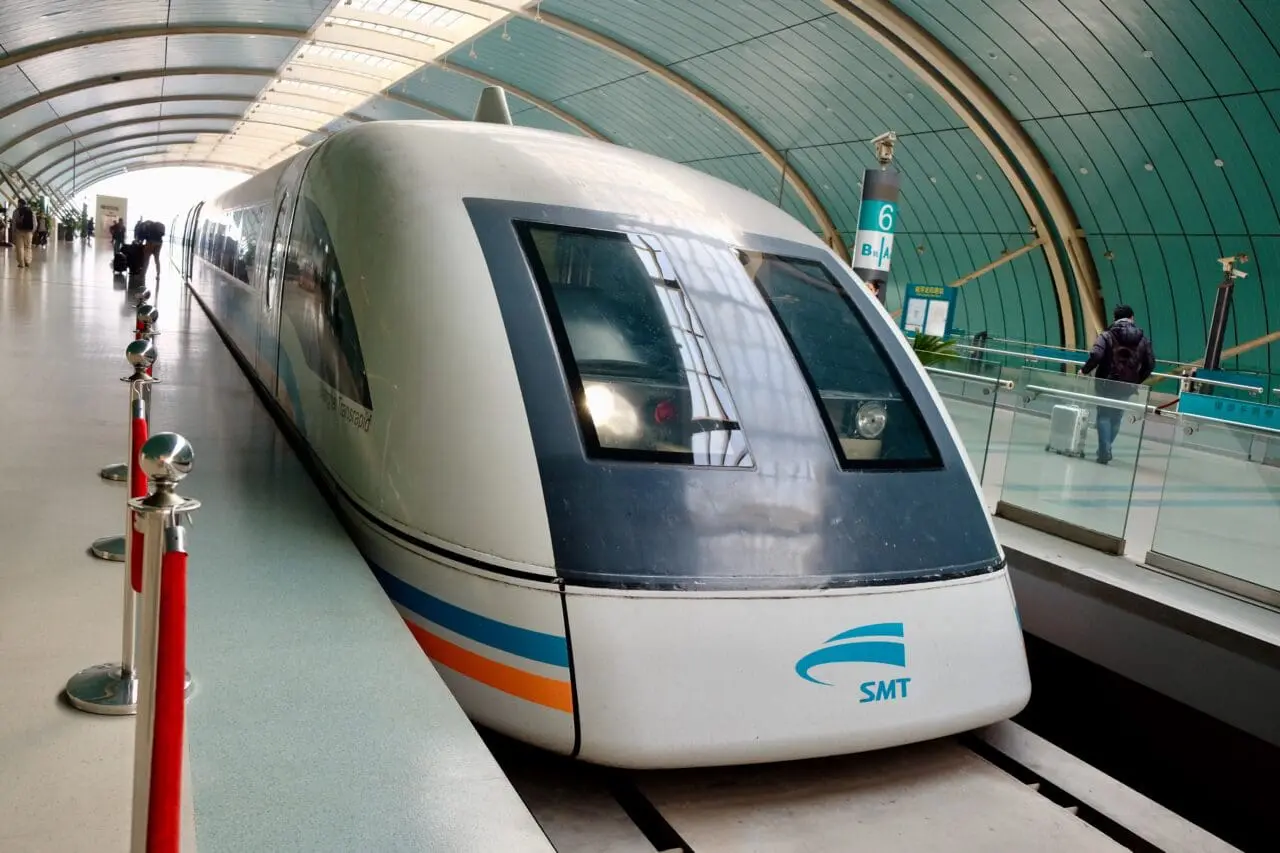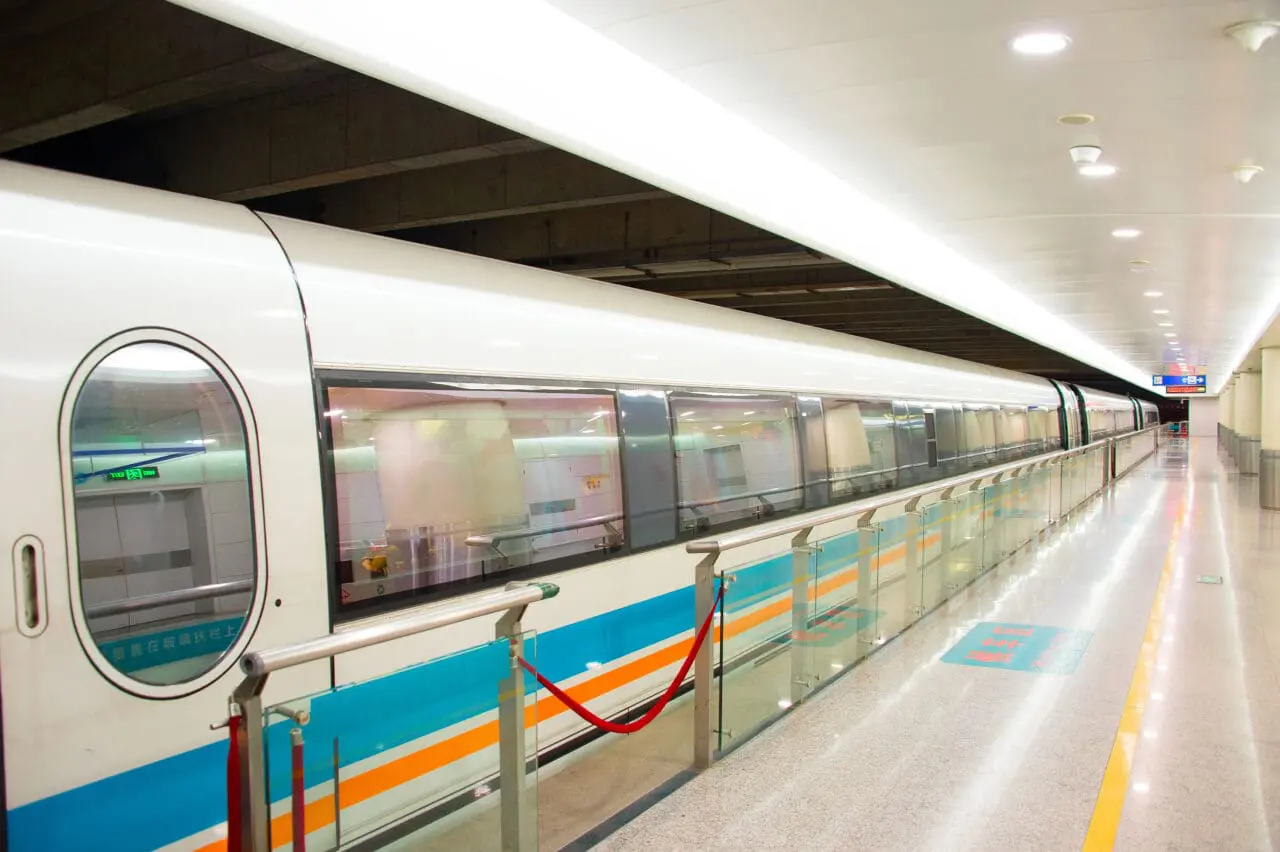

IronLev’s innovative maglev train technology is setting the stage for a revolution across multiple industries, showcasing its remarkable versatility. Originally developed to enhance the efficiency and environmental friendliness of the rail transport sector, this maglev system is now breaking ground beyond the tracks. By significantly reducing friction, maintenance costs, and energy consumption, the commercial maglev train technology offers a promising solution not only for trains but also for elevators and industrial transport systems. The application of maglev in elevators, for instance, could transform the urban landscape by enabling faster and smoother vertical transportation, ideal for the skyscrapers that define our city skylines. Similarly, in the realm of industrial transport, maglev technology has the potential to streamline processes by facilitating the swift and silent movement of goods. IronLev’s forward-thinking approach not only paves the way for a decarbonised future in rail travel but also extends the benefits of maglev to various other facets of modern life.
IronLev is leading a paradigm shift in the rail industry through its pioneering magnetic levitation (maglev) technologies. By integrating maglev systems with existing rail infrastructure, IronLev showcases the potential to significantly reduce the environmental impact of train travel. This innovation is not just a step towards decarbonising the rail sector but also enhances passenger comfort and reduces maintenance costs, signalling a major leap forward in creating a greener and more sustainable future for transportation worldwide. The commercial maglev system developed by IronLev is setting new standards for sustainable and efficient transportation, inspired by the success of the Shanghai maglev train and the maglev line.
IronLev is making significant strides in transportation, especially in reducing environmental impact through its maglev track technology. By virtually eliminating friction between the high-speed maglev train and the maglev track, maglev trains provide a quieter, smoother, and more energy-efficient mode of transport compared to conventional rail systems. The maglev train compartment benefits from superconducting magnets, resulting in reduced noise pollution and energy consumption. These innovations represent crucial steps towards sustainability in the rail industry, aiding efforts to decarbonise transport and mitigate environmental damage associated with traditional rail infrastructure. IronLev’s technology paints a promisingly green and serene future for rail travel.
IronLev is reshaping the lives of those residing near train lines by introducing maglev trains, offering a glimpse into a future where the rumble and roar of trains are things of the past. Leveraging maglev technology, IronLev’s trains operate with significantly reduced friction and, consequently, noise, transforming the experience of living near railway tracks. This innovation not only promises to enhance the quality of life for local communities by minimising auditory disturbances but also heralds a shift towards more sustainable, energy-efficient transportation methods. IronLev’s collaboration with the Yamanashi Maglev Test Line, Central Japan Railway Company, and Railway Technical Research Institute showcases its commitment to creating more liveable, eco-friendly urban environments. By cutting down on noise pollution and reducing the environmental footprint of trains, IronLev is positioning itself at the forefront of efforts to promote sustainable urban development.
IronLev’s groundbreaking maglev technology, inspired by the Shanghai Maglev Train, is venturing beyond the boundaries of passenger rail transport, highlighting its vast potential in revolutionising the industrial transport sector. By harnessing the power of magnetic levitation, this innovative solution offers an unprecedented opportunity to enhance the movement and handling of goods within and between manufacturing facilities. The promise of a smoother, faster, and more energy-efficient transport mechanism stands to not only expedite industrial processes but also significantly reduce operational costs and minimise environmental impact. In industries where speed and efficiency are paramount, the adoption of IronLev’s commercial maglev system could mark a significant leap towards more sustainable and cost-effective operations, setting a new benchmark in industrial logistics and material handling. This advancement is propelling train forward, paving the way for high-speed trains of the future.
IronLev’s pioneering magnetic levitation train technology, embodied in the renowned maglev line, is at the forefront of revolutionizing the transportation sector. With groundbreaking energy savings and efficiency enhancements, it outperforms traditional systems. By eradicating friction between vehicles and tracks, this innovative approach not only conserves energy but also boosts the overall efficiency of transport networks. Whether in urban rail, industrial logistics, or vertical transportation like elevators, the impacts are profound. Trains glide quieter and smoother, industrial goods move effortlessly, and elevators ascend without conventional mechanical constraints. IronLev’s technology sets new benchmarks for sustainable transportation, aligning with global initiatives to reduce energy consumption and environmental impact in moving goods and people. This advancement echoes the magnetic levitation train link between Pudong International Airport and Central Japan Railway Company.
The commitment of IronLev to advancing maglev train technology extends far beyond the initial development phase, entering a critical period of rigorous testing and refinement. This phase is pivotal in validating the reliability, efficiency, and environmental benefits initially promised by commercial high-speed maglev trains with electromagnetic suspension. IronLev’s ongoing testing endeavours are not just about perfecting the technology but also about demonstrating its applicability and benefits in real-world settings. These trials serve as a litmus test for the technology’s potential to revolutionize transportation across various sectors, from urban rail systems to industrial logistics. Furthermore, as IronLev navigates through these testing phases, it’s also laying the groundwork for broader adoption, paving the way for a future where transportation contributes to a greener, more sustainable planet. The success of these tests could very well herald a new era for the global transportation industry, marking a significant leap towards reducing our carbon footprint and creating more energy-efficient infrastructures.
IronLev, deeply rooted in the rich tradition of Italian innovation and engineering excellence, spearheads a pivotal shift in the transportation landscape through its high-speed trains and maglev technology. This technology, renowned for its ability to reduce friction and noise significantly, showcases a fusion of creativity and practicality, trademarks of Italian ingenuity. Beyond advancing rail transport, IronLev’s maglev systems influence various sectors such as urban mobility, industrial logistics, and vertical transportation solutions like elevators. The railway technical research institute is pivotal in the development of the maglev line and the advancement of high-speed maglev technology. The notable decrease in energy consumption and the move towards smoother, quieter operation highlight a future where transportation efficiency sees a marked improvement, reflecting a harmonious blend of innovative technology and environmental stewardship. In this realm, IronLev emerges as a torchbearer of a new era in global transportation, deeply influenced by Italian craftsmanship and forward-thinking.
The growing interest in IronLev’s maglev technology, particularly in the maglev train line sector, underscores its potential to revolutionise transportation. This magnetic levitation solution not only signifies a leap towards quieter, more comfortable, and efficient travel but also aligns with global sustainability goals and reduced carbon emissions. By reducing friction in traditional rail and transport systems, IronLev’s magnetic levitation innovation offers significant energy savings and lower operational costs, making it an appealing choice for future transit investments. Furthermore, the successful adoption of maglev trains in various areas, from urban rail to industrial logistics, demonstrates their versatility and potential for widespread implementation, driving further investment and interest in maglev systems.

This website uses cookies to improve your experience. Choose what you're happy with.
Required for the site to function and can't be switched off.
Help us improve the website. Turn on if you agree.
Used for ads and personalisation. Turn on if you agree.
This website uses cookies to improve your experience. Choose what you're happy with.
Required for the site to function and can't be switched off.
Help us improve the website. Turn on if you agree.
Used for ads and personalisation. Turn on if you agree.